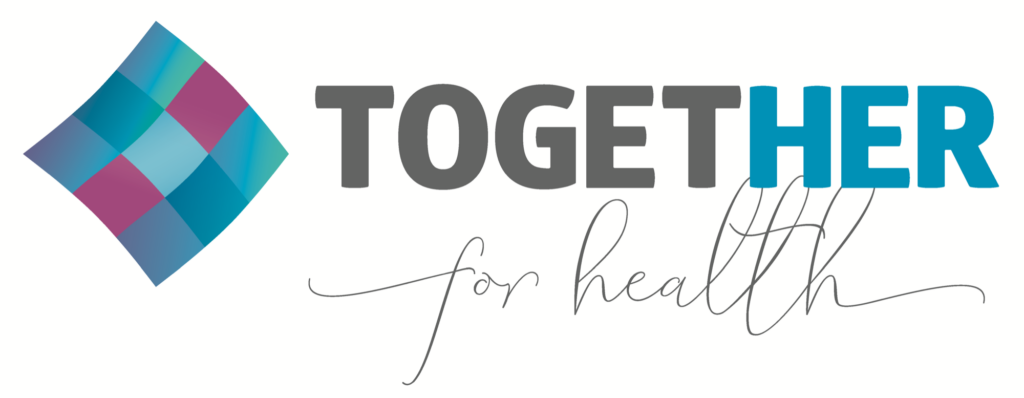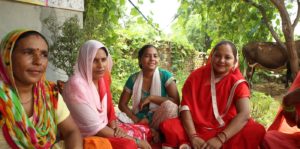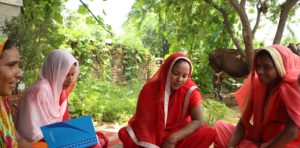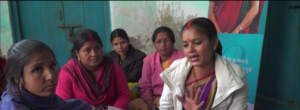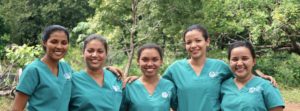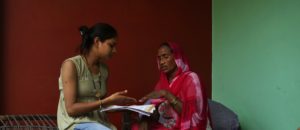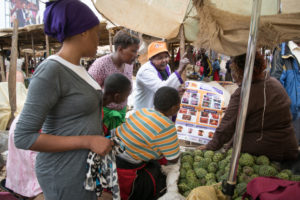News Feed
This past week, Member States of the World Health Organization (WHO) officially adopted the WHO Global Strategy Towards Elimination of Cervical Cancer as a Public Health Problem, as presented in May 2020 at the 73rd World Health Assembly. The adoption of the Strategy represents a major milestone for the global cervical cancer community, and one that gives national, regional and global stakeholders a common goal, with specific 10-year targets for vaccination, screening and treatment. Based on WHO models, if countries are able to vaccinate 90% of girls against human papillomavirus (HPV) by age 15, screen 70% of all women for…
More...July 14, 2020 First, I would like to acknowledge the vision and tireless efforts of Celina Schocken, co-founder of TogetHER, who along with Kathy Vizas, launched this organization in 2017. In only a few short years, TogetHER has become a trusted partner committed to championing global cervical cancer prevention. It is a testament to Celina’s hard work and determination to have brought this organization so far, in such a short period. We’re fortunate to have Celina and Kathy continuing to guide TogetHER in advisory roles. On behalf of the TogetHER team, and our partners, thank you! As of July 1st,…
More...Human Rights Watch explores the connection between poor HPV vaccination coverage and inadequate access to sexual health education with Alabama’s disproportionately high cervical cancer rates. Read more here and watch the accompanying video below. Human Rights Watch. US: Alabama Missing Ways to Improve Young People’s Health. © 2020 by Human Rights Watch
More...Over 70,000 women die of cervical cancer in India every year, more than any other country in the world. A lack of access to critical cervical cancer screening services puts an untold number of Indian women at risk. As part of the Under-Told Stories project, the PBS NewsHour profiled a program by TogetHER’s member organization PSI to break down barriers to cervical cancer screening and treatment in India.
More...Cervical cancer kills more Nicaraguan women than any other cancer. A lack of available resources to prevent and treat cervical cancer in Nicaragua is compounded by inadequate education regarding women’s health. Issues of stigma and machismo present further barriers that can make a woman’s decision to be screened for cervical cancer even more difficult. In our newest case study, TogetHER is proud to highlight one group taking the fight against cervical cancer to rural Nicaragua. The Lily Project’s mobile clinics bring critical women’s healthcare with a patient-centered approach to rural Nicaraguan women, who otherwise would have little to no access…
More...TogetHER joins the global health community in praising a joint collaboration between Gavi, the Vaccine Alliance, the WHO, UNICEF, and a global cadre of vaccine manufacturers to ensure that 84 million girls will be immunized in the next five years against human papillomavirus (HPV), the primary cause of cervical cancer. The new supply partnership is a component of a UNICEF-led tender, and was announced at Gavi’s recent replenishment event held in the United Kingdom. Vaccine industry partners include GSK and MSD – the two current manufacturers of HPV vaccines – as well as the Serum Institute of India and the…
More...WHO has published new guidance to facilitate access to essential medical devices for screening, diagnosis and treatment for precancerous lesions. The guidelines are available here. The purpose of the WHO technical specifications for the screening and treatment of precancerous lesions is to provide the requirements for procuring high quality and appropriate products for various screening procedures (VIA, HPV diagnostics, and colposcopy) as well as preventive treatment procedures (thermal ablation, cryotherapy, and LEEP/LLETZ). We’re pleased to see guidance published that incorporates a broader range of screen and treat options.
More...In many countries, the COVID-19 crisis is now limiting access to essential health services for girls and women. TogetHER for Health, along with our global partners and other supporters, share our global Call to Action to maintain essential sexual and reproductive health services, including cervical cancer prevention and treatment services, during the COVID-19 pandemic. We look forward to working with Ministries of Health and other partners to ensure cervical cancer and SRH services emerge from this pandemic in tact and stronger than before. If your organization would like to sign on, please do so via this form.
More...The COVID-19 pandemic is changing the way that sexual and reproductive health (SRH) services, including cervical cancer (cxca) prevention, are delivered. Program planners and healthcare workers must work to update and innovate in the delivery of these services if they are to be sustained during the pandemic. On Tuesday, April 28th, TogetHER for Health hosted a twitter chat to bring our community together to discuss the implications of COVID-19 on our work, and the steps we can take today to protect women’s lives. We were joined by voices from across the globe, including a great group of expert voices including:…
More...April 29, 2020 – This article from TogetHER Executive Director Celina Schocken originally appeared in the Wilson Center’s New Security Beat blog. Cervical cancer affects 570,000 women a year and kills 311,000. Nine in 10 (88 percent) of the deaths occur in developing countries. This cancer is caused by a common sexually transmitted infection, human papilloma virus (HPV), but is also considered a non-communicable disease (NCD) because of the slower way it presents. Yet, the disease is one of the most preventable and treatable cancers, and cost-effective solutions exist to prevent the disease. Given strong overlaps between HIV and reproductive health,…
More...We have a responsibility to the women we serve to ensure the steps we are all taking against the coronavirus pandemic do not thwart our goals of improving women’s health in the long term.
More...The April 6, 2020 issue of The New Yorker included a piece on cervical cancer among women in the U.S. state of Alabama.
More...TogetHER for Health joined with other leading global health organizations to issue a Call to Action outlining steps that the global community must take to advance integration of cervical cancer and family planning services.
More...Too often, stories about cervical cancer are dominated by numbers. What’s often lost is the women behind these numbers.
More...Savitha Mallapa lives with her family in Bengaluru city. She’s an entrepreneur and a mother to two teenagers who keep her busy. Like any mother she worries about her children and wants to take every opportunity to protect them from harm. So when Savitha heard that an HPV vaccine might protect her daughter from future cancer, she wanted to know more about it.
More...Sangeeta’s advice to all women is to be advocates for their own health. She educates those around her about the screening tests for cervical cancer and about the HPV vaccine. Sangeeta is not just a survivor of cervical cancer – she is a powerful advocate.
More...The sky goes grey as 48-year old Lakshmi heads to the terrace of her house to remove the laundry. She deftly pulls it down and dashes downstairs to pull the buffaloes inside the shed, just as the first drops of rain hit the ground. “I run this house and take care of everything, so I have to stay healthy and make sure nothing happens to me,” says 48-year-old Lakshmi.
More...In the heart of India’s capital city, New Delhi, Dr. Neerja Bhatla has been working for over two decades to prevent the spread of cervical cancer amongst Indian women. Dr. Bhatla is the Head of the Department of Obstetrics and Gynecology at the All India Institute of Medical Sciences, Delhi. As faculty at one of the largest government hospitals in India, she sees patients from all over India.
More...Every morning, 30-year-old Jagwati starts her daily ritual by making notes for the group of women she needs to meet in her village. Jagwati is an ‘ASHA’ (Accredited Social Health Activist) worker in Arua village in Haryana, a northern state of India. She’s been working as a community health worker for over 10 years now.
More...TogetHER had a very productive 2019! We urge you to read about our work over the past year, which has set the stage for a history-making push against cervical cancer. Please browse our report to learn about our unique role alongside many effective service delivery organizations.
More...